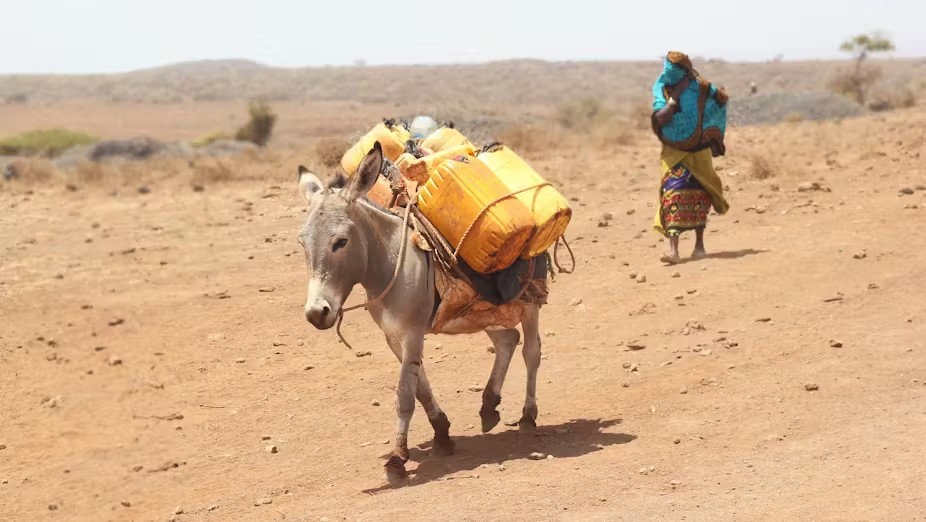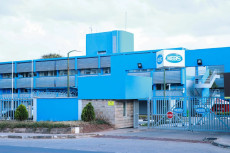- The momentous 15-year ban on the killing of donkeys will protect the remaining 33 Million donkeys that are being stolen and their skin trafficked to China.
Kenya is expected to observe the National Day of the Donkey on May 17, 2024 to preserve and protect the threatened number of donkeys from killing, trafficking and illegal skin sale.
On February 18, 2023, the African Union Summit held in Ethiopia outlawed the killing of donkeys in Africa for their skin following the Dar es Salaam declarations during the Pan African Donkey Conference in December 2022.
Africa is home to 33 million donkeys, over two-thirds of the 50 million donkeys estimated to exist worldwide; the commercial killing of donkeys for their skin is still a significant threat to the existing donkeys.
The momentous 15-year ban on the killing of donkeys will protect the remaining 33 Million donkeys that are being stolen and their skin trafficked to China.
According to Calvin Solomon Onyango, the Director of The Donkey Sanctuary, if the exploitation of donkeys continues, their existence is doomed.
Read More
“If donkeys in Africa continue to be exploited, in another three to six years, donkeys could join the rhinos and elephants as the endangered species in Africa,” Lamented Mr Onyango.
According to a report by Donkey Sanctuary, the demand for donkey skin in China between 2016 and 2021 for the manufacturing of Ejiao increased by 160 per cent, with a projection of 6.8 million being killed every year in 2027.
Ejiao, a traditional Chinese medicine made from gelatin boiled from donkey skin, requires a minimum annual production of 5.9 million donkey skins to keep up with the demand in China.
In the battle against ending the donkey skin trade in Kenya, the government revoked the four licenses of the donkey slaughterhouses in the Rift Valley that had been operating the businesses.
According to the Association of Donkey Owners of Kenya (ADOK), the population of donkeys in Kenya decreased by 800,000 in about eight years. In 2016, the country had 1.8 million donkeys, which reduced to 1 million in 2023, a decrease of 44 percent.
Association of Donkeys Owners of Kenya Chairman Titus Ogalla said that following the closure of the slaughterhouses in Kenya, donkeys continued to be sold illegally to bush slaughters, drastically contributing to the reduced number of donkeys.
“As an association we championed the closure of the slaughter houses but this also led to the rise of bush slaughters that have posed a great threat to the existing donkeys,” Mr Ogalla said.
Mr Ogalla also added that with rising demand by bush slaughters, donkey raids and theft have been increasing, which has caused donkey owners losses and increased fear of losing their animals.
Homa Bay County is set to hold an international donkey day in Kayambo, Ndhiwa Sub Location, to raise awareness of the importance of caring for endangered donkeys.
According to George Okuku of Ripple Effect, the event will aim to link animal service providers with farmers and donkey owners in the communities.
“It will be a big day for farmers and donkey keepers because they will get access to animal service providers who will teach the residents on how to care for their donkeys for economic productivity,” said Mr Okuku.
Beatrice Akinyi Otieno, a farmer and a donkey keeper, narrates her love for her beautiful Beast of Burden, whom she named Ruto because he was born during the swearing-in of the fifth president of Kenya.
“My donkey has been my support system as a farmer, every morning the first thing I do is to greet my donkey, then I rub his neck gently, this makes him to wear a happy face,” Mrs Otieno said.
Beatrice also said that her Donkey is her most valued animal, and when she lost Ruto’s mother, she wept because she had lost a valued friend.
“When Ruto’s mother died, I felt like I had lost my child, Ruto would neigh about in the compound looking for its mother and that would break my heart. I have taken care of Ruto ever since and he has grown to love me back,” she noted.
Beatrice added that the relationship between her and her Donkey has grown following the treatment she has been given since birth, which has tripled her crop production and made transport easy for her.
“Whenever I come back home Ruto runs around neighing out of happiness because I have taken care of him as I do to my own children, my donkey is an integral part of my home,” she added.
As the AU declaration on the protection of donkeys continues to be observed across the continent, Africa is looking forward to an increase in the 15-year ban on donkeys.
Following the AUC declaration, the African Union Inter-African Bureau for Animal Resources (AU-IBAR) designated 2024 as the year of Donkey Species Preservation in Africa.











